Publications
Articles, publications, books, tools and multimedia features from the U.S. Institute of Peace provide the latest news, analysis, research findings, practitioner guides and reports, all related to the conflict zones and issues that are at the center of the Institute’s work to prevent and reduce violent conflict.
Question And Answer
Amid a Changing Global Order, NATO Looks East
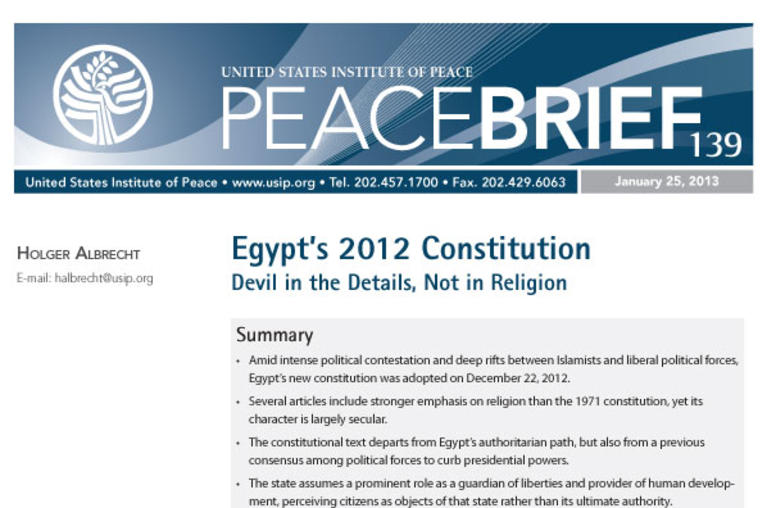
Egypt’s 2012 Constitution
Dr. Holger Albrecht is an assistant professor of political science at the American University in Cairo and Jennings Randolph senior fellow (2012-2013). His main research focus is on political opposition in the authoritarian regimes, transition to democracy, and civil-military relations in the Middle East and North Africa. His new book, “Raging Against the Machine: Political Opposition under Authoritarianism in Egypt,” is forthcoming with Syracuse University Press.
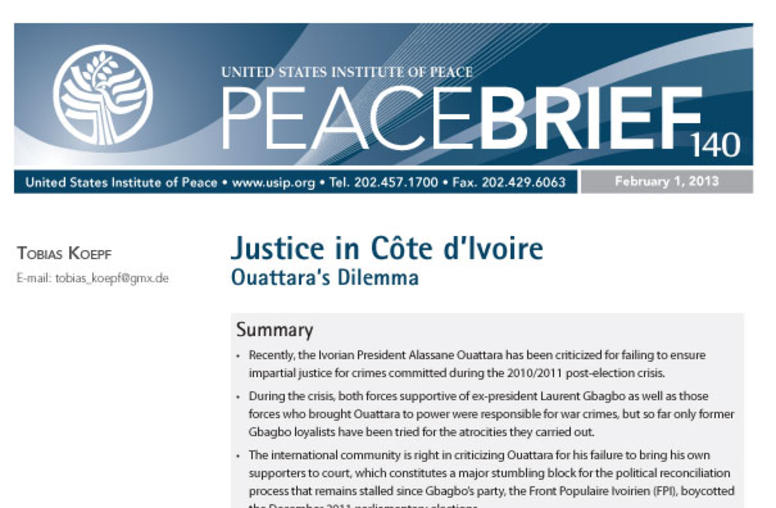
Justice in Côte d’Ivoire
In the brief, Tobias Koepf reports on research he is conducting on the post-conflict reconciliation process in Côte d’Ivoire.
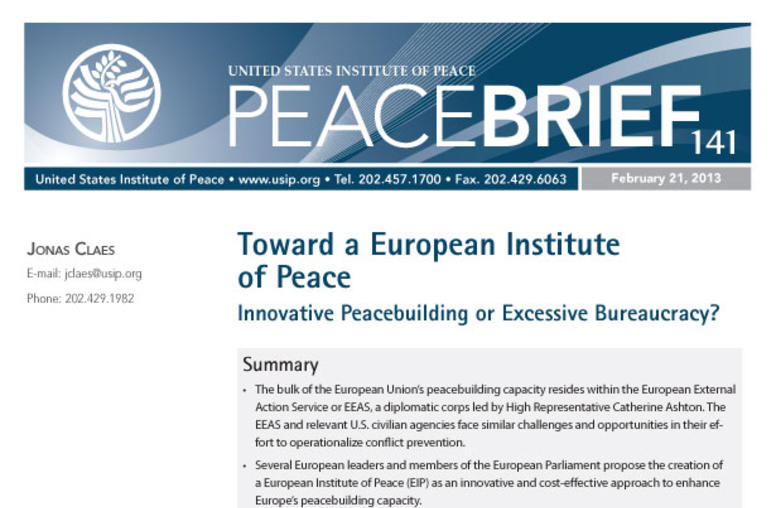
Toward a European Institute of Peace
This Peace Brief follows a series of interviews conducted with senior EU officials and civil society representatives on the role of the European External Action Service in conflict prevention, and the author’s participation in consultations on the feasibility of a European Institute of Peace.
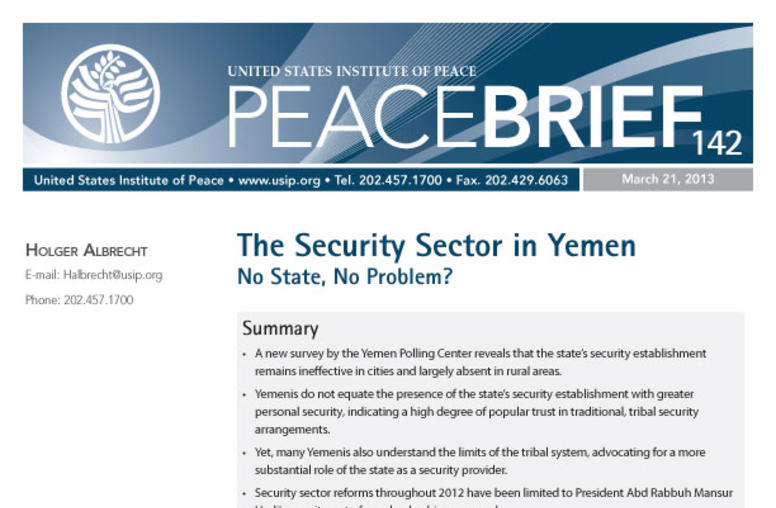
The Security Sector in Yemen
This Peace Brief is based on the author’s three-week research mission to Yemen in January 2013. Holger Albrecht is assistant professor of political science at the American University in Cairo and Jennings Randolph senior fellow (2012-2013). His main research focus is on political opposition in the authoritarian regimes, transition to democracy, and civil-military relations in the Middle East and North Africa.
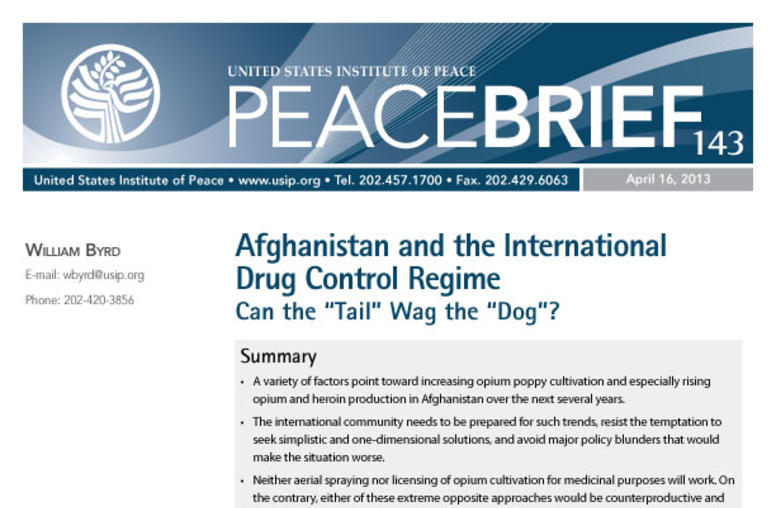
Afghanistan and the International Drug Control Regime
Despite extensive counternarcotics interventions and reductions in poppy cultivation in certain regions, Afghanistan remains the largest supplier of illicit opiates. In this Peace Brief, USIP’s William Byrd examines the current situation and various options to manage the problem.
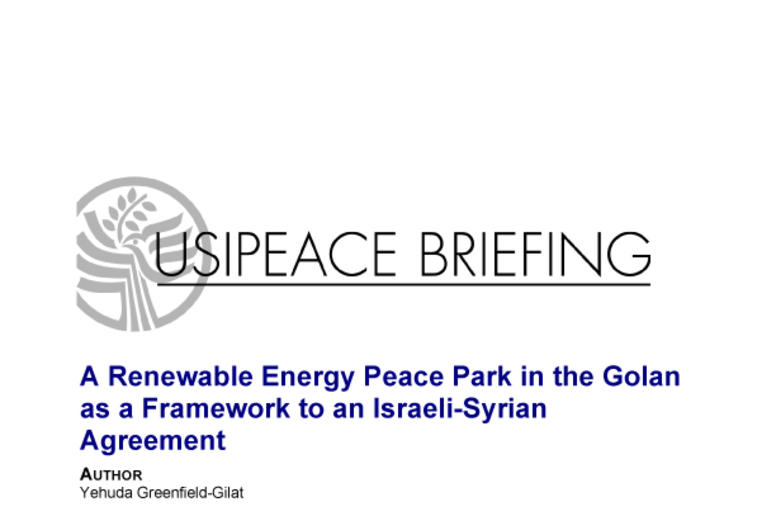
A Renewable Energy Peace Park in the Golan as a Framework to an Israeli-Syrian Agreement
The widely discussed Syrian-Israeli peace park concept is rooted in the assumption that Syrian and Israeli "good will" for cooperation is sufficient to mobilize a long- lasting, firm peace treaty between the two countries. The current discussions on a layout for a peace park provide a description of the mechanisms that will control and maintain the park, but fail to provide the insights for how to keep these mechanisms functioning in one, five or ten years into the future.
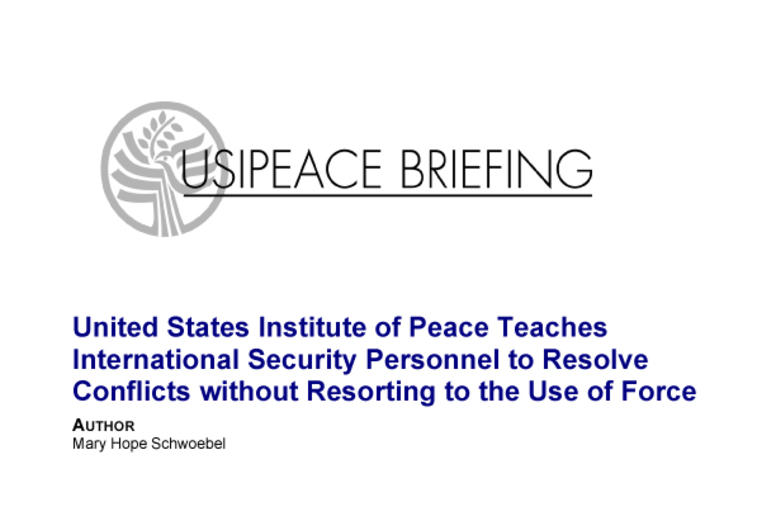
U.S. Institute of Peace Teaches International Security Personnel to Resolve Conflicts without Resorting to the Use of Force
Over the past decade, the United States Institute of Peace (USIP) has trained members of police and military forces around the world to prepare them to participate in international peacekeeping operations or to contribute to post-conflict stabilization and rule of law interventions in their own or in other war-torn countries. Most of the training takes place outside the United States, from remote, rugged bases to centrally located schools and academies, from Senegal to Nepal, from Italy to th...
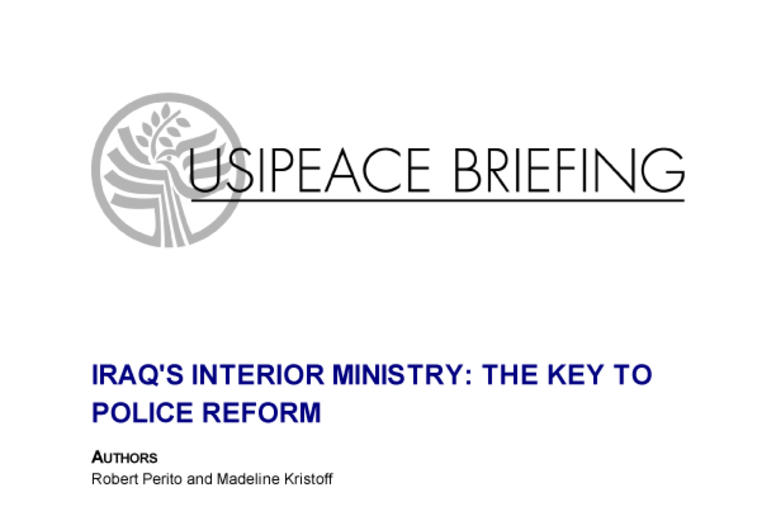
Iraq's Interior Ministry
As part of a push to bolster security in Iraq, the U.S. government declared 2006 the “Year of the Police” and focused on building the institutional capacity of the Ministry of the Interior, which supervises and trains Iraq’s police force. However, even by 2007, numerous reports described Iraq’s Ministry of the Interior as crippled by corruption and sectarianism, and furthermore represented a major obstacle to developing an effective police force in the country.

Media for Next Generation Peacebuilding in Iraq
In order to address some of the challenges facing youth in Iraq, USIP and its Iraqi partners created a multimedia program that provides Iraqi teenagers with tools that can help them grow into independent, empowered citizens within a complex society. In April 2009, USIP’s Center of Innovation for Media, Conflict and Peacebuilding organized an expert working group in Erbil, Iraq to discuss various peace media programming relevant for Iraqi youths. This report offers an introduction to USIP’s yo...
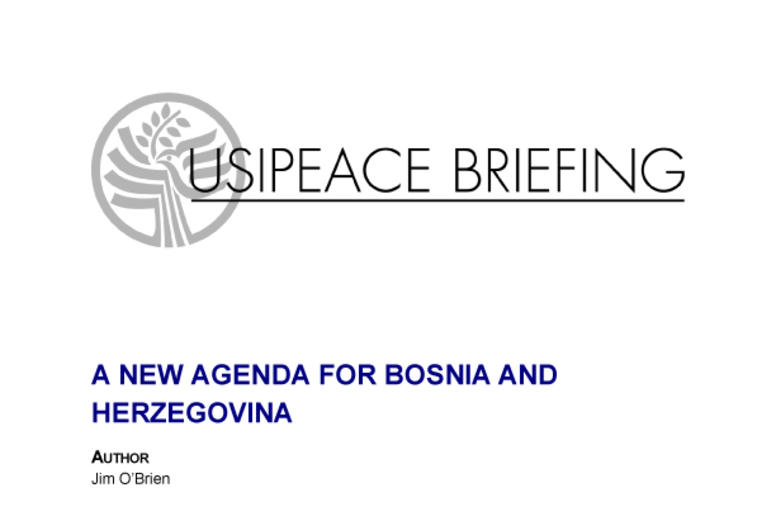
A New Agenda for Bosnia and Herzegovina
As concerns grow about Bosnia's post-war recovery, USIP presents its fourth report on recent developments in Bosnia and Herzegovina and various options the U.S. government, Europe and Bosnia could pursue to prevent a return to violence there. In his paper, author Jim O'Brien, who served as the presidential envoy for the Balkans in the 1990s, cautions against taking a big initiative in Bosnia to head off a future crisis, but rather advocates taking on many, smaller battles that will ultimately...